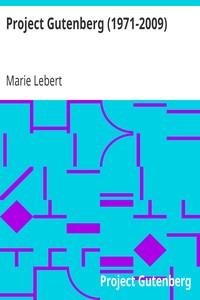| Summary |
"Project Gutenberg (1971-2009)" by Marie Lebert is a historical account of the Project Gutenberg initiative, a groundbreaking effort to digitize literary works and make them freely available to the public. Written in the early 21st century, this book provides an overview of the project's inception, its gradual expansion, and its impact on society, mirroring the evolution of technology through the Information Age. Likely intended for a broad audience, the topic revolves around the democratization of literature and information through digital means. In the book, Lebert details the origins of Project Gutenberg, founded by Michael Hart in 1971, starting with the digitization of significant texts like the "U.S. Declaration of Independence." The narrative progresses through various milestones, highlighting key accomplishments such as reaching 10,000 ebooks and the challenges posed by copyright laws. The author emphasizes the collaborative nature of the project, driven by volunteers and its adaptation to changing technology, including the rise of the internet. Additionally, the book discusses the sustained mission of making public domain works accessible to global audiences, while also addressing the evolving landscape of copyright and digital rights that threaten the availability of such resources in the future. (This is an automatically generated summary.)
|

